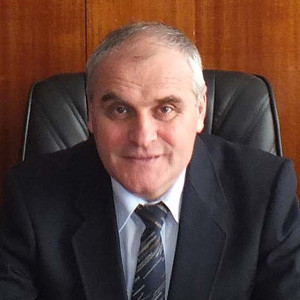Representatives of science and research centres on three continents are discussing, in Bourgas, solutions to environmental problems in different spheres. One of the items on the agenda of the international conference “Ecological engineering and environmental protection” is connected with the biodegradability of potential waste, generated by long term space missions.
Did you know that the astronauts from the international space station generate several tons of waste every year? For the time being they simply eject the waste where it burns in the atmosphere. With longer space flights in future – to the Moon or Mars, as is the ambition of the human race – that would be impossible, commented Professor Viacheslav Ilyin from the Moscow Institute of Medicobiological Problems and Prof. Hristo Naydenski, Director of the Bulgarian Academy of Sciences (BAS) Institute of Microbiology. The two scientists took part in the “Ecological engineering and environmental protection” international conference with a youth session.
 “There will be a ban on ejecting this kind of waste and cellulose into outer space – negotiations on such a ban are currently underway,” Prof. Hristo Naydenski says. “And then all of this waste will have to be processed onboard the spacecraft and serve as a source of water, carbon dioxide, of energy to be used for the flight itself. At the moment we, from the Moscow Institute of Medicobiological Problems and from the BAS Institute of Microbiology are working, together, on anaerobic biodegradability methods for this waste with the help of microorganisms. This has been done experimentally here, on Earth, what we have to do now is optimize these methods in the environment of outer space.”
“There will be a ban on ejecting this kind of waste and cellulose into outer space – negotiations on such a ban are currently underway,” Prof. Hristo Naydenski says. “And then all of this waste will have to be processed onboard the spacecraft and serve as a source of water, carbon dioxide, of energy to be used for the flight itself. At the moment we, from the Moscow Institute of Medicobiological Problems and from the BAS Institute of Microbiology are working, together, on anaerobic biodegradability methods for this waste with the help of microorganisms. This has been done experimentally here, on Earth, what we have to do now is optimize these methods in the environment of outer space.”
Disposal of this waste is very important to astronauts, but also to the people here, on Earth. And the reason is that it contains potentially pathogenic, i.e. dangerous microorganisms which could mutate additionally in outer space.
The spread of antibiotic resistance in the soil and in farms is another problem the scientists have to address.
“That is a very pressing issue as in the next ten years we are expecting to see a boom in antibiotic resistance and medicine will have to face a serious problem,” Prof. Hristo Naydenski explains. “There are different kinds of solutions. The authors presented separate recommendations connected with limiting the use of antibiotics, applying other categories of measures that would contribute to a betterment of the health of humans and animals while gradually restricting this phenomenon. Our colleagues from France made an interesting presentation connected with the optimization of a number of biotechnological processes. How, if we change some parameters like temperature of the environment, humidity etc., in a process we can predict the end result of these biotechnologies by applying a mathematical model.”
A separate session during the conference in Bourgas will discuss natural calamities in Bulgarian forests and the forest fires during the 2009-2018 period. Up to date satellite imagery will be used to evaluate and monitor the current state of plant life, the water index and other indicators in protected zones.
The scientific forum in Bourgas brought together established names as well as young researchers from France, Italy, Belgium, the Netherlands, Portugal, Russia, Ukraine, Latvia, Cyprus, Georgie, Algeria and Bulgaria.
A university in Bourgas – the Prof. Dr. Assen Zlatarov – and the BAS Institute of Microbiology are co-organizers of the event which continues until 7 June.
As a rescue center for wild animals, this year too, the Sofia Zoo sheltered deer injured in accidents, storks that cannot fly and even a Nile crocodile . Among the animals housed are also confiscated valuable exotic birds such as pink flamingos and pink..
Non-governmental organizations are cleaning two of the beaches on the Southern Bulgarian Black Sea Coast. The Clean Christmas campaign under the motto "A Clean Home for the Inhabitants of the Black Sea" is being organized for the seventh..
Sofia City Hall is planning a light show instead of fireworks for the New Year's celebrations, it's press office announced. The show, which will be part of the programme of the New Year's Concert at Knyaz Alexander I Square, will be designed with..
The fountain in the center of Bukata Garden, located near Madara Bath in Sofia, has been restored to its original form with the help of the Sofia..
Taekwondo athlete Kimia Alizadeh, who won a bronze medal at the 2024 Paris Olympics, supported the National Campaign Combating Violence Against and..
As a rescue center for wild animals, this year too, the Sofia Zoo sheltered deer injured in accidents, storks that cannot fly and even a Nile crocodile ...

+359 2 9336 661
